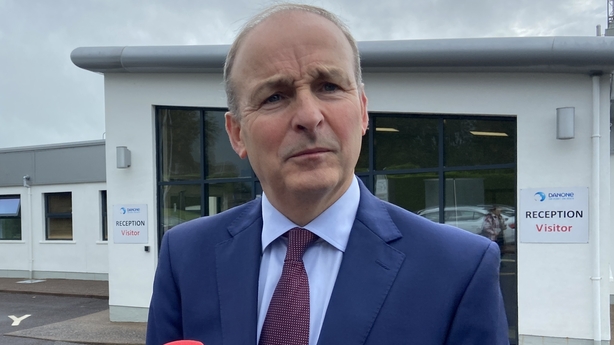Tuesday's Budget has a lot to live up to, it comes as inflation remains high and tackling the cost of living remains the number one political priority for the Government.
The Budget must also find a landing space for the competing aspirations of the three coalition parties.
But perhaps its biggest problem is that it comes in the wake of last year’s record Budget day announcement of €11 billion in new measures.
Around €4 billion of this was for those supposedly once-off cost of living payments which rained down in the months that followed.
No matter how often ministers emphasise the temporary nature of those supports, it is undoubtedly true that expectations of extra help for households and businesses are now simply baked in.
And in addition to those budget payments, there were two other interventions in March 2022 and February 2023 with more help announced.
Weaning the public off the sugar rush of extra cash has proven difficult as announcements have been quickly overtaken by requests for more help.
By January this year, the two money ministers, Michael McGrath and Paschal Donohoe, were again facing a barrage of questions about when the next set of payments would be announced.
Both seemed mildly irritated as they stressed that some of the Budget cash had not even landed yet.
It is against this backdrop that they formulate this year’s package which will again be buttressed by some one-off payments.
But the message has been clear as both have repeatedly dampened expectations, these will not be as large as last year.
However, working against the fiscal prudence of those ministers is the stark political reality that this is expected to be the coalition’s penultimate Budget before the next general election and the local elections are also looming in June 2024.
This means that the political imperative of going large is very much at play.
Taoiseach Leo Varadkar acknowledged this reality in recent days when he agreed that elections are a factor in the calculations.
"We’re politicians, we face the public and have to explain our decisions to them...Every politician is aware of the electoral cycle."
His party has once again focused on tax cuts for the squeezed middle or allowing workers to keep more of their pay rise as the Taoiseach has sold it.

In a neat piece of politicking, Fianna Fáil has flagged a USC cut as its priority on the personal tax front.
It’s pretty clear that both will be part of Tuesday’s Budget which means small changes spread wide.
The Greens have stressed targeting help to those less well off as well as climate action measures.
On that front, an increase to the Qualified Child Payment as well as other welfare hikes have been flagged.
Perhaps the most politically contentious part of the Budget relates to housing.
More has been promised to help renters and landlords as well as mortgage holders.
But targeting and politically proofing these initiatives is reportedly proving very difficult.
Renters are likely to see an increase to their tax credit while residential landlords are expecting something after being mostly overlooked in recent years.
It seems at this point that the landlord help will be small and conditional on commitments to stay in the market.
The coalition has also been dragged reluctantly to the point of conceding that there will be some help for mortgage holders coping with the spate of interest rate hikes since July 2022.
But this is proving fiendishly complicated to target at those most exposed (tracker mortgage holders) while there are arguments around the fairness of helping those already on the property ladder.
However, the Government has been outflanked by Sinn Féin on this relief and something is now expected.
But several pessimistic warnings overshadow the finalisation of the Budget.
The ESRI, the Irish Fiscal Advisory Council and others are all warning about a slowdown in the economy and the increased future costs of an ageing population.
The Nevin Institute, which is affiliated to ICTU, warned yesterday that the case for tax cuts in this Budget is "non-existent".
In addition, windfall corporate tax receipts appear to be weakening. This has been the subject of many warnings.
As previously promised, some of these receipts will be squirrelled away into two new funds.
One of these will focus on infrastructure while the other is being described as a "future fund" to provide for pension, healthcare and climate action initiatives in the years to come.
Tánaiste Micheál Martin has said he hopes young people and people in their 30s will see that mechanisms will be put in place in the Budget to protect their quality of life in the future.
That all has a whiff of a big idea to attempt to lure back young voters who have switched to Sinn Féin.
And it illustrates yet again that a series of elections is looming.







